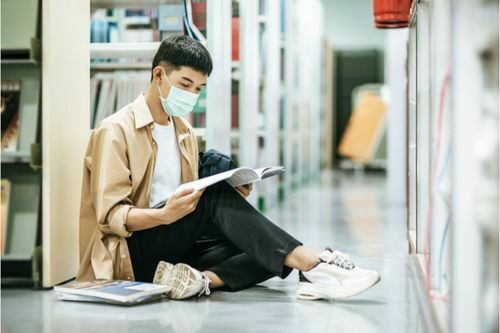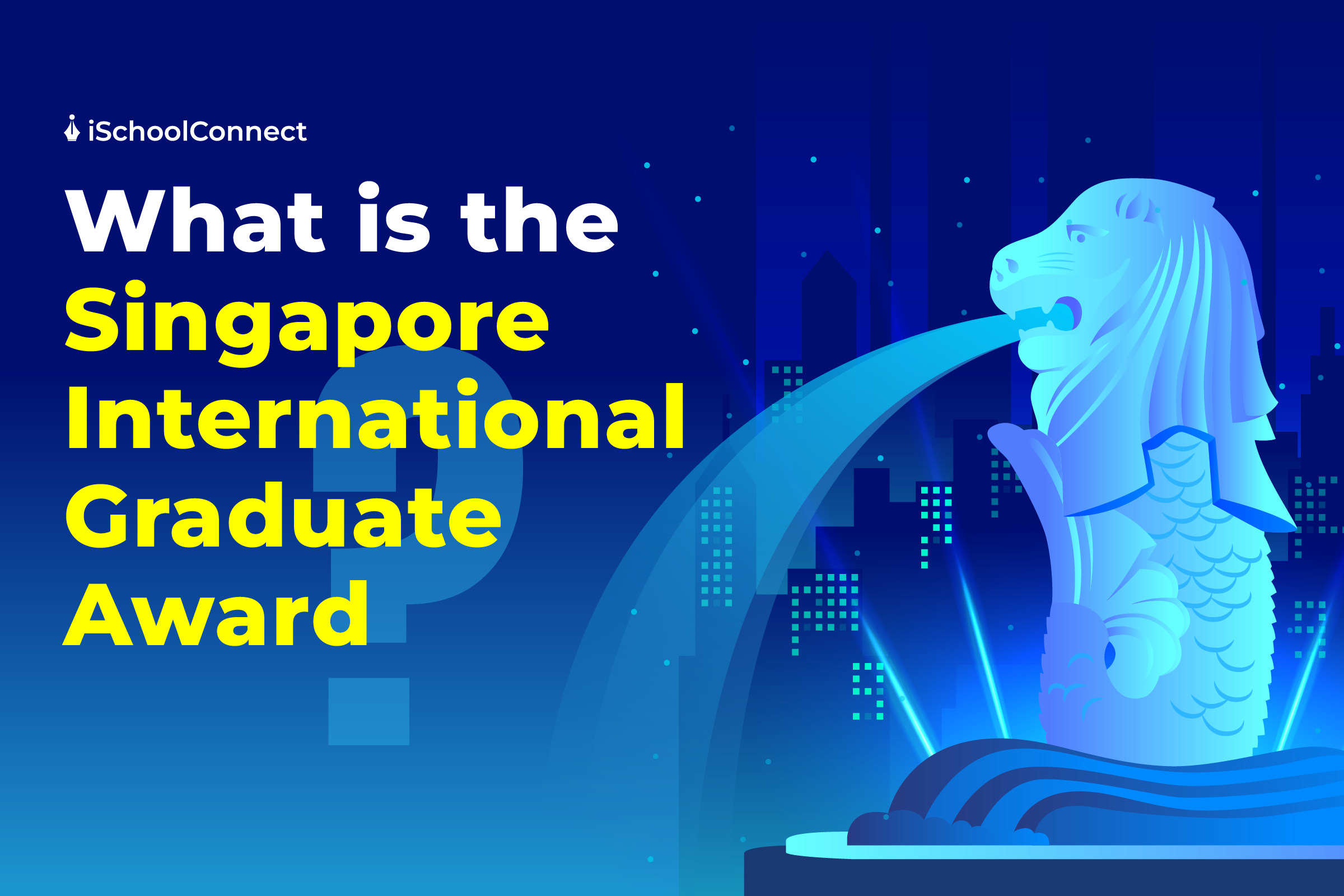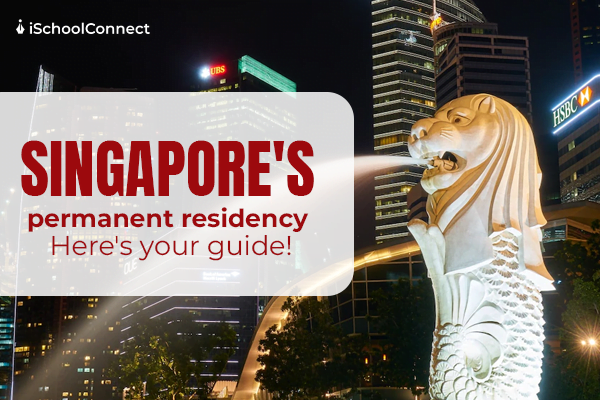Table of Contents
- Why study MBBS in Singapore?
- Eligibility for MBBS in Singapore
- Courses for MBBS in Singapore
- Yong Loo Lin School Of Medicine
- Duke-NUS (National University of Singapore) Medical School
- Lee Kong Chian School of Medicine (at the Nanyang University of Technology)
- SGH-PGMI ( Singapore General Medical Hospital-Postgraduate Medical Institute)
- Key takeaways
- FAQs
Singapore has exceptional educational standards and is a global leader in higher education, as made evident by its position in the QS Higher Education System Strength Rankings 2018. So much so that other world-class institutions have identified Singapore as the ideal location for establishing their international campuses. Read on to know why MBBS in Singapore is a great deal.
Why study MBBS in Singapore?
Education
Singapore has an estimated literacy rate of 94.45%. It spends nearly 19.6% of its total revenue on education, with higher education accounting for 35.28% of that share. In Singapore, there are approximately 2.35 doctors for every 1000 people. Singapore did achieve a remarkable feat in education.
Employment
Singapore has a high employment rate, accounting for nearly 88% of the population. It has a low unemployment rate of 2.2%. Hence, employment in Singapore is easily achievable.
Scholarships
Singapore’s Ministry of Education provides tuition grants to international students. According to the scholarship agreement, a student must return after completing the course and work to repay the loan.
Permanent residency
Out of all applicants, approximately 82% successfully obtain permanent residency. Over the last decade, the number of international students granted permanent residence in Singapore has steadily increased. It was 6000 until 2017.
Safe environment
According to a global study published in 2018, Singapore topped the Law and Order Index for five consecutive years. The surrounding environment is favorable and convenient. According to Gallup, 94% of adults in Singapore feel safe traveling at night, significantly higher than the global average. It was also named the safest city in 2017.
Singapore provides a secure environment with low crime rates, accessible public transportation, and first-rate public amenities.
Cultural diversity
Singapore is a cultural melting pot. English, Malay, Tamil, and Chinese are among the four official languages. The cultural mix makes Singapore a fun and social place.
Eligibility for MBBS in Singapore

Students preparing to study MBBS in Singapore must meet a set of eligibility criteria carefully created to determine their aptitude and ability before enrolling in the course. These admission criteria are established to assess the student’s academic progress.
- Students must graduate from high school with a minimum percentage of marks set by the institution.
- Some institutions may require students to take English proficiency tests such as IELTS, TOEFL, etc.
- SOPs and two LORs are required and will be evaluated during the application process.
- Universities also consider the student’s profile, including extracurricular activities.
- A student must take two additional tests- the Focused Skills Assessment (FSA) Test and the Situational Judgement Test (SJT).
Courses for MBBS in Singapore
The MBBS curriculum in Singapore is divided into five phases. Phases 1 and 2 cover general topics in medicine and human anatomy. They provide students with a solid foundation of knowledge. Phases 3–5 delve deeper into the subject matter and teach specifics of medicine and surgery. During the final three phases, students are given the opportunity to select electives. Here are some courses taught by the universities in Singapore.
| Foundations of Human Biology- The Cell | Musculoskeletal System |
| Endocrine & Reproductive Systems | Cancer Biology |
| Principles of Pharmacology and Systemic Pharmacology | Neuroscience & Musculoskeletal |
| Medicine | Orthopedic Surgery |
| Obstetrics and Gynecology | Forensic Medicine |
| Dermatology | Acute Care comprising Anesthesia and Emergency Medicine |
| Immunology | Clinical Skills Foundation Program |
Leading medical schools in Singapore
Here are some of the leading medical schools in Singapore.
Yong Loo Lin School Of Medicine
Yong Loo Lin School of Medicine was Singapore’s first higher education institution, founded in 1905. It is the creation of Singapore’s National University. This school provides one of the Asia-Pacific region’s most highly valued undergraduate programs.
The MBBS here is a five-year bachelor’s degree, but the course lasts six years for international students. It is among Singapore’s top MBBS colleges. The annual tuition fee for the NUS Yong Loo Lin School of Medicine’s MBBS program is SGD 61,000.
Duke-NUS (National University of Singapore) Medical School
The Duke-NUS Medical School is a collaborative effort between Duke University in the United States and the National University of Singapore. This is Singapore’s second medical school, following the Yong Loo Lin School of Medicine.
It is Singapore’s first and only US-style graduate school. This university provides a postgraduate Doctor of Medicine (M.D.) program. The Duke-NUS M.D. program is four years long. The candidates are awarded a joint degree from Duke University and the National University of Singapore.
For this course, the candidate must have a bachelor’s degree. The annual tuition fee for the M.D. program is SGD 69,000. (inclusive of GST).
Lee Kong Chian School of Medicine (at the Nanyang University of Technology)

Nanyang Technological University is home to the Lee Kong Chian School of Medicine. It was Singapore’s third medical school when it opened in 2013. The medical curriculum is based on the renowned Imperial College of London. As a result, the Imperial College and Nanyang Technological University jointly award the MBBS degree here. The annual tuition fee at the medical school is SGD 70,750. (inclusive of the service fee and GST).
SGH-PGMI ( Singapore General Medical Hospital-Postgraduate Medical Institute)
SGH Postgraduate Medical College is Singapore’s first Postgraduate Medical College. It aims to integrate Singapore General Hospital’s resources as a PG medical training center. This institution provides a variety of courses to candidates who show an interest in becoming healthcare professionals. The annual tuition fee for MBBS in SGH-PMI is SGD 22,225.
Key takeaways
- Singapore is an excellent choice for international students pursuing MBBS. Education in the Lion City is of international standards and groundbreaking.
- Owing to the cultural diversity, safe environment, scholarships, and employment rate, the number of students in Singapore is increasing by the day.
- The leading medical schools in Singapore have international roots. Some of them provide joint degrees with international universities.
Did you find this blog informative? If so, please share your thoughts in the comments section below. Click here to reach out to us for more information on MBBS in Singapore. We would be happy to assist you with your queries.
Liked this blog? Read next: MBBS in Canada | Top 7 institutes, eligibility, and more!
FAQs
Q1. What is the average salary of a doctor in Singapore?
Answer- The average salary for a doctor in Singapore is SGD 5,100.
Q2. Which scholarships are available for MBBS in Singapore?
Answer- The MOE Tuition Grant Scheme, the ASEAN Undergraduate Scholarship, and the Dr. Goh Keng Swee Scholarship are some of the scholarships available for MBBS in Singapore.
Q3. What is the basic cost of living in Singapore?
Answer- Singapore is a bit expensive place for international students. Despite choosing a less expensive option, an international student must pay between 750 and 2000 SGD per month for living expenses.






